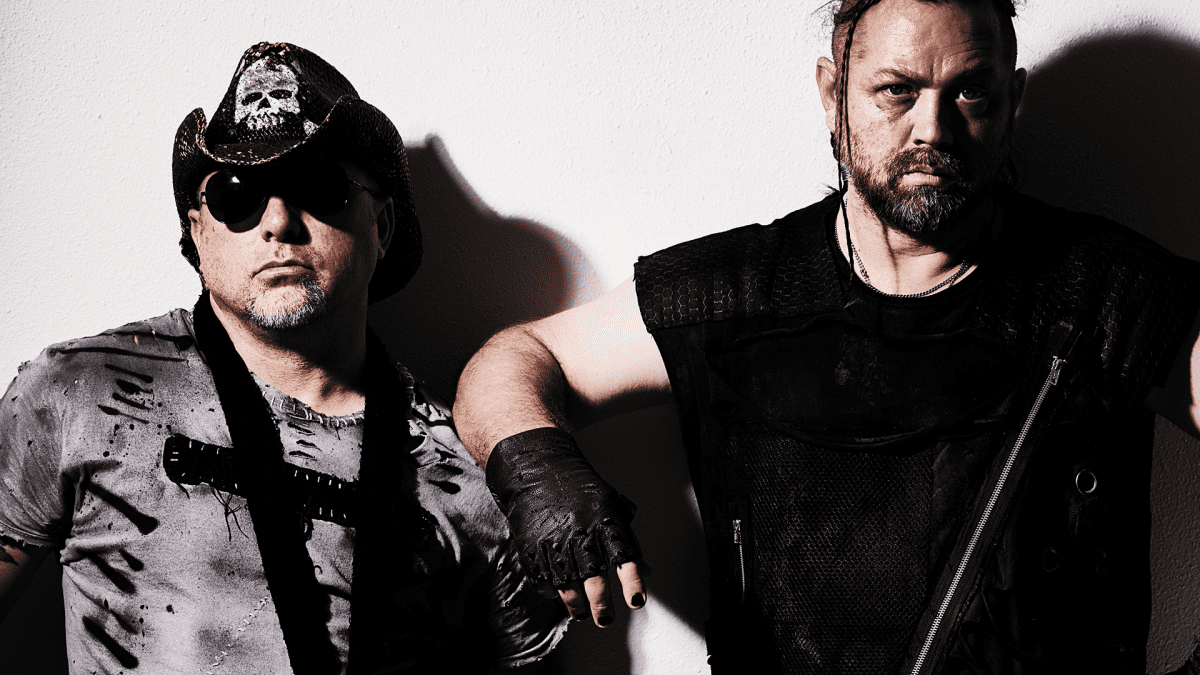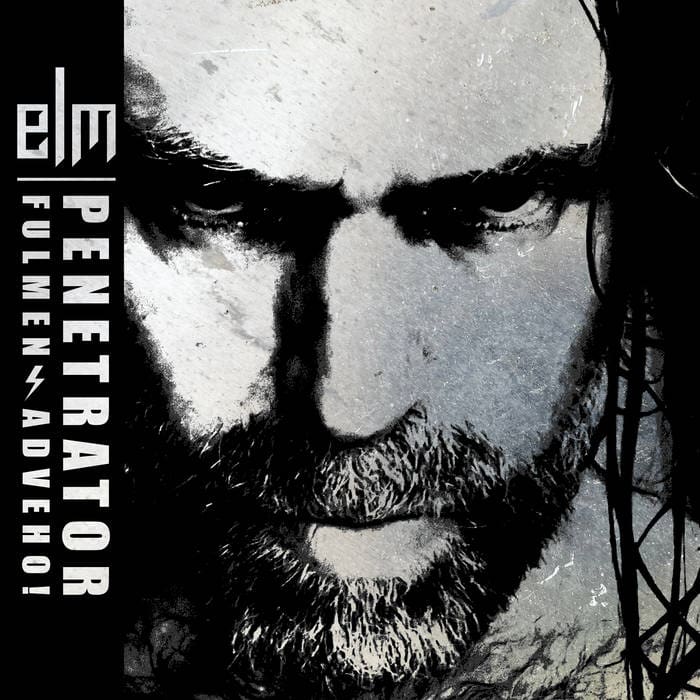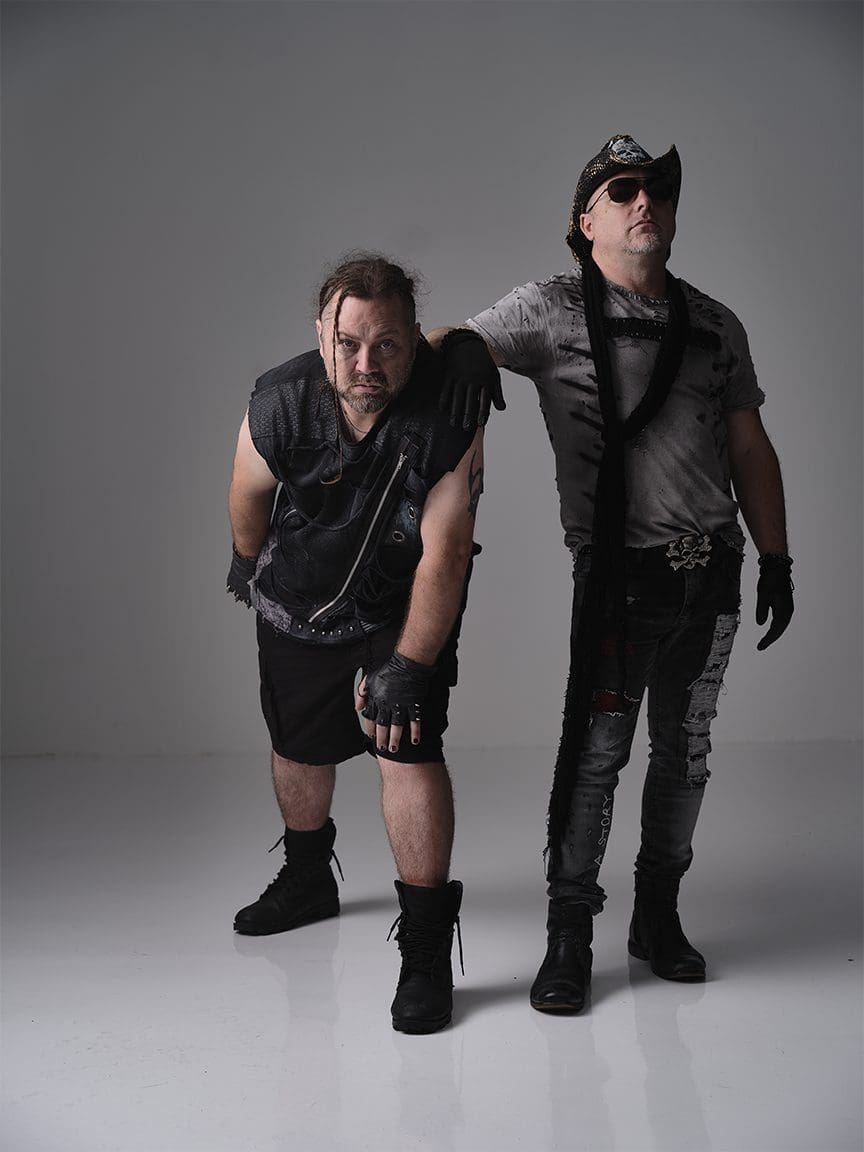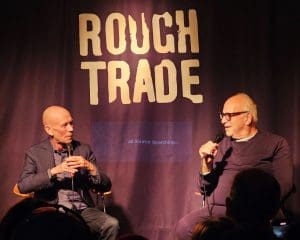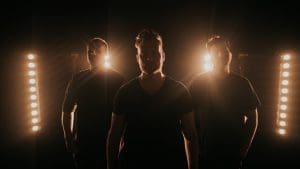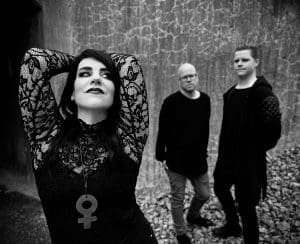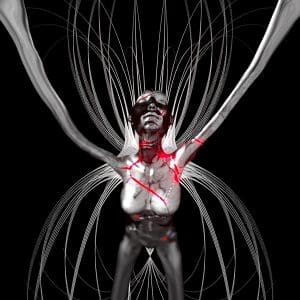‘Click Interview’ with KREIGN: ‘I Like That It Is Simple And Minimal’
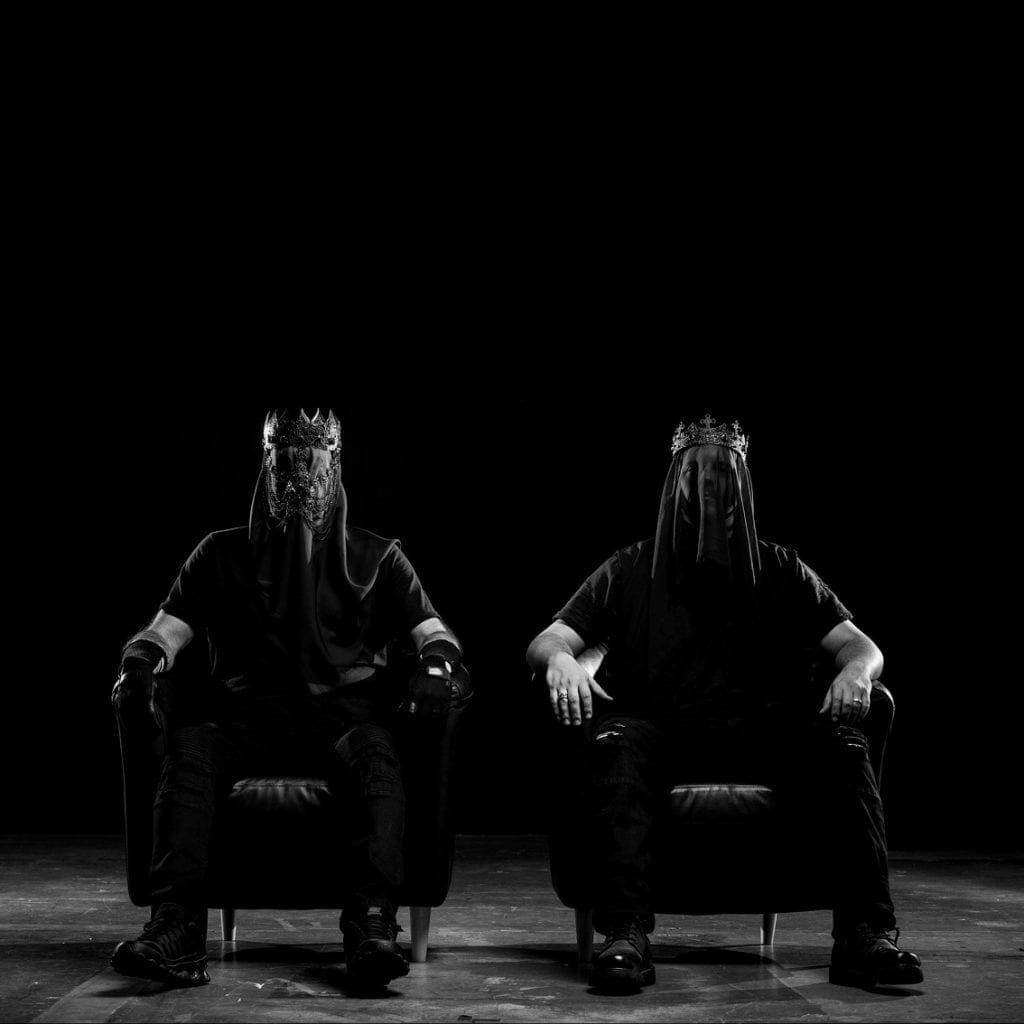

KREIGN is an American set up in 2010 by featuring Ryan Hutman and Xiån Austin. They met thanks to a mutual friend. Ryan was involved with HARDWIRE and in search of a drummer. Xiån was drumming for Sang:Rael and Alter Der Ruine at the time and finally joined HARDWIRE. Some HARDWIRE songs were pretty EBM-driven, which was the reason to start a side-project. KREIGN was born and asked Dave Strand (THE STRAND) to join in as singer. But he finally decided to move on with THE STRAND. Being a side project, KREIGN didn’t really move anywhere for 10 years even though they had quite a few songs started and set aside. But KREIGN finally released their self-titled and self-released debut album in 2020, which got rapidly re-released by Scanner (Dark Dimensions). The work is a powerful mix of good-old EBM with an impressive sophisticated production on top. “Kreign II” is a true masterpiece and one of the best EBM releases from the past years.
(Courtesy by Inferno Sound Diaries)
Q: KREIGN has been set up as a tribute to ‘old-school’ EBM. What makes this ‘old-school’ style that special and what do you like in EBM sound?
Ryan: It evokes aggression from me and I like that. I like the groove. I like that it is simple and minimal.
Xiån: I grew up a New-Waver… in Utah of all places. My first glimpse of EBM and I’m not sure if it could be categorized as such, but it was MINISTRY’s “Twitch”-album. I could not stop listening to “We Believe”. It was the driving bassline and simplicity of the beat that gripped me. I wanted to hear more. I was now on the hunt for something similar. Back then there was no Internet. The only way to find new music at the time was via magazines, clubs and/or word of mouth. A friend of mine had a DJ buddy in New York City. He would send him mixtapes of music he was spinning. I discovered bands like FRONT 242, NITZER EBB, DAF, PANKOW, SKINNY PUPPY, FRONT LINE ASSEMBLY and more. I would comb through record stores for hours and I would buy anything with cool cover art that looked Industrial or EBM. That’s how I discovered the now legendary Wax Trax Records.
In the late 80’s, early 90’s, Salt Lake City spawned a killer Industrial club called ‘The Pompadour’. We would go religiously every Thursday, Friday, and Saturday night. The DJ was awesome and he knew his shit. Funny thinking about it now, he was probably more annoyed at the fact that, almost every song, we’d go to the booth and ask who he was spinning. Haha!
Q: You guys got both involved with HARDWIRE while you were still active in other projects as well. What did you learn out of these previous experiences and what makes the difference with KREIGN?
Ryan: Jonah from HARDWIRE taught me to not always use the ‘easy’ word to make a rhyme and to put more thought into my lyrics. Now, I am proud of my lyrics, even though they are usually simple. I can say more with less words.
Mike from HARDWIRE and I learned early on that a live drummer can take a show to the next level. Even though I admit I suck at playing drums, I do it for KREIGN when Xiån sings “Disco King” and “In That Frame Of Mind”.
Xiån: I learned that it’s very difficult to manage multiple projects. Haha! All good though, the experience was worth every moment. I enjoyed traveling, playing shows and meeting cool peeps. As far as the difference with KREIGN, I think Ryan and I have very similar mindsets. When we hook up to write, it just flows. It’s a freak of nature I suppose.
Q: Old-school EBM often sounds simple and powerful; solid bass lines mixed with a danceable tempo plus harsh vocals and eventually metallic percussion parts. I consider KREIGN as one of the first bands breaking the codes; your music being definitely old-school like, but much more sophisticated and elaborated. Tell us a bit more about ‘sound’ and writing/production of the songs?
Ryan: I figured out how to bend notes with soft synths in Cubase and I couldn’t stop doing it. We then translated that forced portamento back into the Nord Lead 2. Then Xiån and I would grab a few knobs on the Nord while the computer played the midi and recorded whatever we thought sounded cool. Fucking with FM, octave selector, pitch, and cutoff was so fun. We couldn’t do it without four hands on it and us laughing at the crazy sounds it made as we pushed the keyboard to it’s limits. It became a signature bass sound in most of the songs. It is rare for us to leave a bass sound without at least messing with the cutoff. Almost every sound is modulated by hand or is programmed to modulate.
Our formula also includes a few other hallmarks like basslines that play for just one verse, break downs that go to ultra minimal and then build up bigger, random sounds that only happen once in the song, ambient creepy background noise, and lead synth lines.
Q: How did the self-titled debut album “Kreign” see the daylight? What have been the influences, triggers, maybe references, lyrical themes and criteria to achieve the album?
Ryan: I was really influenced by WULFBAND and GESSAFELSTEIN. I went back through a bunch of our songs and randomly detuned them after hearing WULFBAND for the first time. GESSAFELSTEIN influenced me to go back and crank the treble on the synths.
Lyrically, most of the songs have an upbeat message about how to deal with stress, anxiety, and tragedy. “Live Fast” is about my love for my Harley Davidson. “Disco King” is a fun song written with tongue in cheek.
Xiån: The push came from our good friends in HOCICO. Erk invited us to play a show with them in Mexico City. We couldn’t decline the offer. We only had a couple finished tracks at that time. I think we had three or four months to complete the album, learn the songs, and rehearse them enough to perform a decent show.
It was an amazing experience. To this day I can’t believe we pulled that one off. (Still breathing heavy)…
Q: The limited edition of the album is something really special featuring only great remixes by mainly great names from the EBM scene. How did this bonus disc see the daylight and tell us a bit more about the different artists and the remixes they made?
Ryan: We had previously done a remix CD and an EP with some remixes with HARDWIRE. We met Jürgen Engler first through Facebook when we asked him to remix HARDWIRE. We got to meet him in person on the FRONT LINE ASSEMBLY-tour. When we asked him to take a look at KREIGN, he liked it and wanted to remix “5 Layers Of Chaos”. He also wanted to sing a duet with Xiån on “Disco King”. I thought it would be cool if he would sing it in German and he agreed, even though he was unsure if German lyrics would even fit the song. I think it sounds perfect.
I had worked with REACHING FOR SHADOWS on some of the songs on her debut album. We met SPANKTHENUN, NZ, and NOVA STATE MACHINE through Facebook and Bandcamp. As much as I hate Facebook, sometimes it comes in real handy.
Xiån: Peter ELM and I have been friends for many years. He was one of the first people we asked to do a remix. His amazingness never fails. A number of years ago I was invited to play drums for VOLVO:242 (a side-project of SPETSNAZ) at ‘Familientreffen 5’ back in 2009 (there’s a couple of cornball videos on YouTube) and I met the guys in AUTODAFEH who were also on the bill. These guys are top notch! Loved their music and performance. They later asked me to play drums on a couple tracks for their upcoming album, “Identity Unknown”. (“Evil Doll & Love Hate” and “Pain” to be exact). I was honored to do so.
Q: 2020 has been for sure a horrible year to release a debut album. How do you experience the pandemic versus your artistic activities? And what are the plans for post-Covid 19?
Ryan: We would like to play more shows. We did a livestream show called “Isolation Room” and it was fun, but it was in an empty room. We usually feed off of the energy of the audience. It pushes us further to perform harder. We’d like to eventually play shows in Europe.
Xiån: Luckily we’ve stayed healthy throughout the pandemic and have spent a lot of time in the studio writing for our next album. Hope you will all stay tuned. New ideas and sounds are brewing…
Since you’re here …
… we have a small favour to ask. More people are reading Side-Line Magazine than ever but advertising revenues across the media are falling fast. Unlike many news organisations, we haven’t put up a paywall – we want to keep our journalism as open as we can - and we refuse to add annoying advertising. So you can see why we need to ask for your help.
Side-Line’s independent journalism takes a lot of time, money and hard work to produce. But we do it because we want to push the artists we like and who are equally fighting to survive.
If everyone who reads our reporting, who likes it, helps fund it, our future would be much more secure. For as little as 5 US$, you can support Side-Line Magazine – and it only takes a minute. Thank you.
The donations are safely powered by Paypal.


